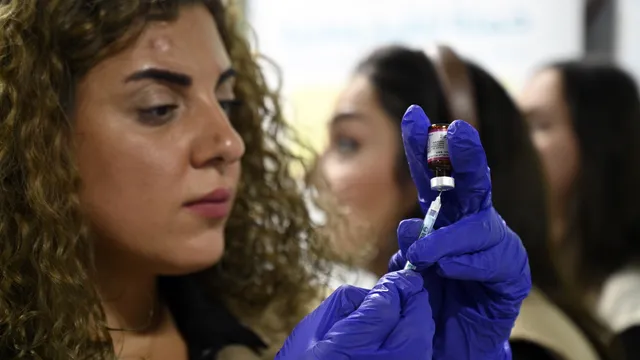The benefits of targeted prostate cancer screening significantly outweigh the potential harms, according to a new study reported by The Telegraph. The study, the first of its kind, found a ratio of seven to one in favor of the benefits over the risks.
Providing blood tests to men aged between 45 and 70 with a family history of the disease leads to seven "healthy years" for every one lost. Similar results were reported for black men, who are at higher risk of the disease.
The findings come amid The Telegraph's campaign for the introduction of targeted prostate cancer screening. Prostate Cancer Research, which commissioned the study, described the results as clear evidence that "the benefits of early detection outweigh the harms."
According to the analysis, screening these high-risk groups would lead to the early detection of cancer in around 820 men aged between 45 and 70 each year, with approximately one in four being saved from an advanced-stage diagnosis.
Additional modeling shows that screening, supported by advanced diagnostic methods, could reduce the 12,000 annual deaths from prostate cancer in the UK by up to 40%.
Currently, men are not offered tests, even when they have a family history of the disease. Experts believe that the arguments in favor of targeted screening are growing, whereby prostate-specific antigen (PSA) tests are offered to men at increased risk.
The UK National Screening Committee (UKNSC) is considering whether to recommend the introduction of such tests. In the past, the idea was rejected because of concerns that PSA tests were not reliable enough and could lead to unnecessary procedures such as biopsies and prostate removal. But in recent years, the additional diagnostic tools used for confirmation have improved a lot.
The new study finds that conducting a PSA test every five years among men in high-risk groups has far more benefits than harms. According to the model, such a program would result in a total of 140.3 quality-adjusted life years (QALYs), which is equivalent to 140 years in perfect health. Losses due to treatment side effects and unnecessary invasive procedures amount to just over 20 years, giving a ratio of seven years gained for every one lost.
The effect is almost as strong in black men, who are twice as likely to develop and die from prostate cancer compared to white men.
The modeling and analysis were done by the consulting firm Deloitte and are based on medical data from the NHS, the Office for National Statistics, and the National Institute for Health and Care Excellence (NICE). The report concludes that a national risk-oriented screening programme targeting black men and those with a family history of the disease would save lives through early detection, improve quality of life, be cost-effective and minimise unnecessary harm.
David James, director of patient projects at Prostate Cancer Research, said: "Simply put, targeted screening would lead to significant improvements in public health, especially for groups at highest risk of dying from prostate cancer."
"In fact, for every year of health lost as a result of introducing screening, between six and seven will be gained. Screening is an intelligent, fair, and effective way to start tackling the second most deadly cancer in men in the UK."
The organization's chief executive, Oliver Kemp, added: "We understand and deeply respect the concerns that testing and treating early-stage cancer raises, especially when the intervention may cause more harm than good. But our analysis shows that with improvements in diagnostics, the balance is now clearly in favor of early detection."
"This analysis provides compelling evidence of the effectiveness of targeted screening. Prostate Cancer Research calls on the government and the UKNSC to introduce such a program immediately."
Health Secretary Wes Streaton welcomed The Telegraph's campaign and said he would like to see a screening program introduced if the evidence supports it.
A government spokesperson added: "Prostate cancer can be devastating, so we are currently considering introducing targeted screening, but the decision must be based on evidence. That is why the UKNSC is prioritising this issue – including whether to recommend screening for men with a family history of the disease."
"While we await the final decision, our 10-year health plan is already working to improve cancer treatment and prevention, including funding tens of millions of pounds for vital new research to help diagnose faster and save lives." | BGNES

 Breaking news
Breaking news
 Europe
Europe
 Bulgaria
Bulgaria







